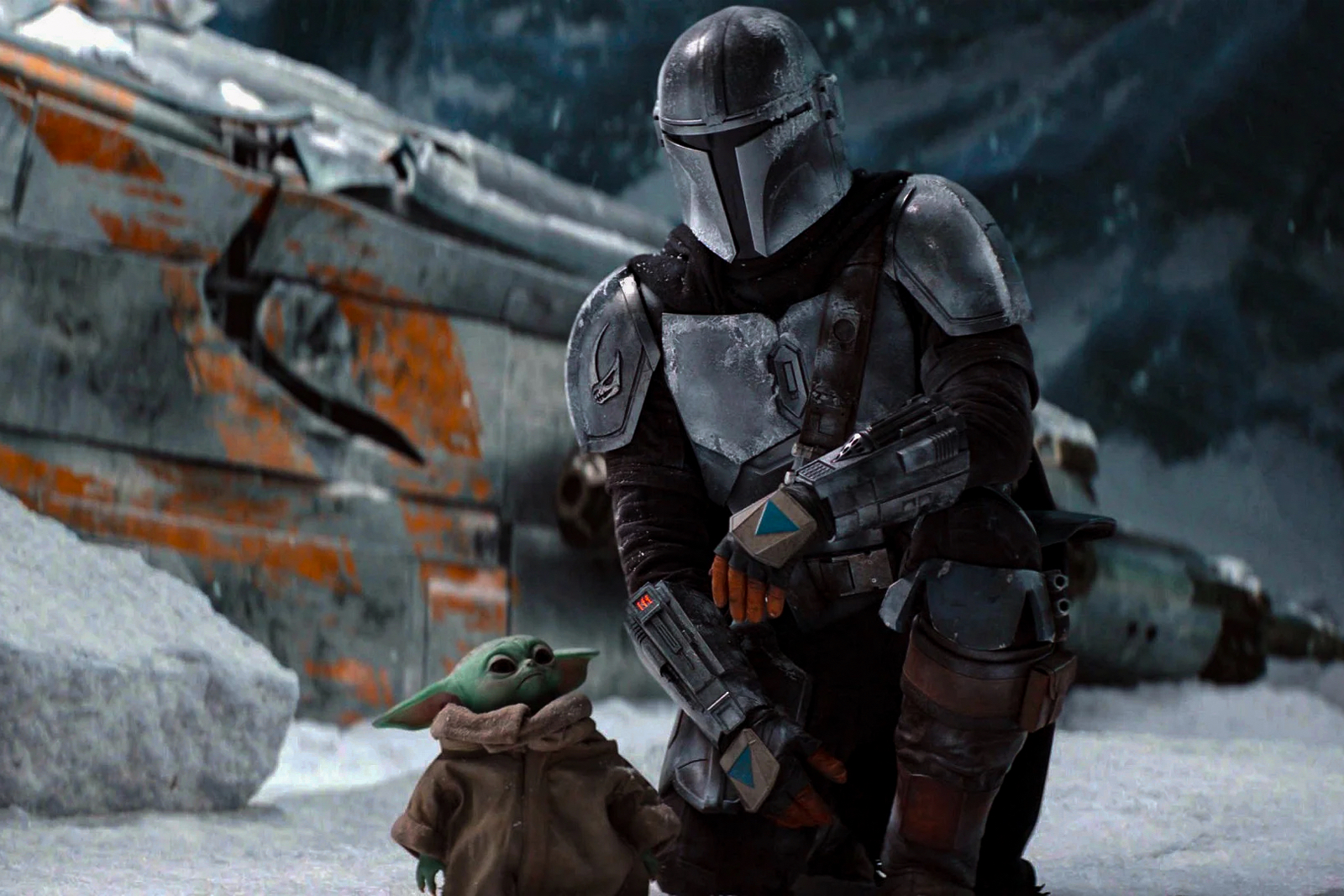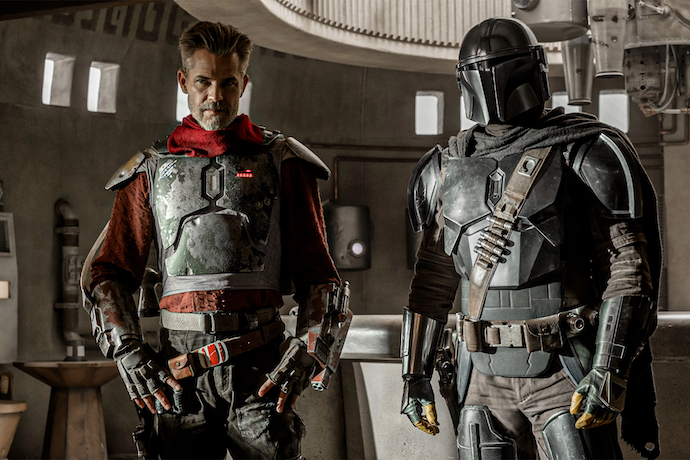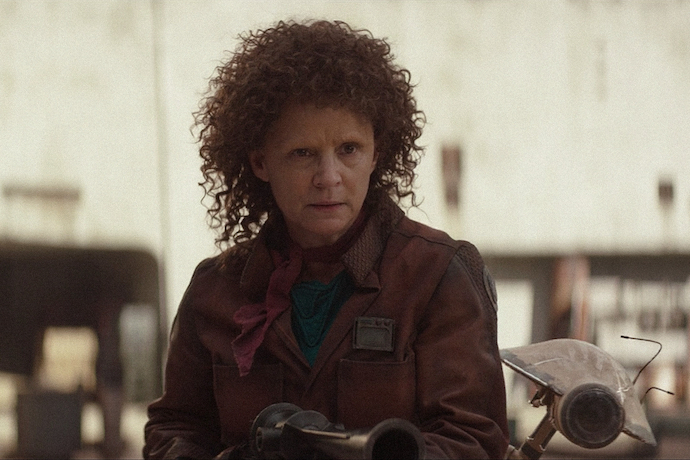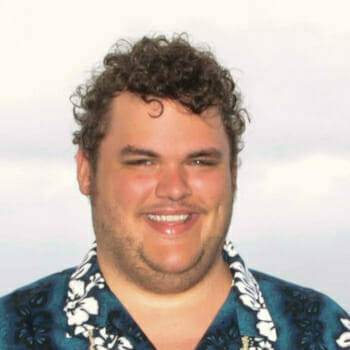
Why My Dad, a ‘Star Wars’ Fan, Thinks ‘The Mandalorian’ Works so Well
Despite it probably being my favorite movie franchise, this is the first time that I’ve written about Star Wars specifically, and for good reason. The conversation around this most beloved of space operas has become severely toxic over the past few years, particularly in regard to the sequel trilogy. Whatever your thoughts on The Last Jedi, I happen to like it a great deal. However, with that said, The Rise of Skywalker was a major disappointment.
As someone who remembers the hype and acclaim that seemed to be there after the release of The Force Awakens in 2015 and Rogue One in 2016, I’ve been noting that The Rise of Skywalker tainted the entire conversation around the sequel trilogy.
A very dedicated and obnoxious subset of the Star Wars fandom is convinced that Kathleen Kennedy is the devil and thinks that things would be just fine if they handed the reins back to George Lucas. Everyone seems tired of Star Wars projects with big-name creators being announced only to ultimately fall through, and no Star Wars movie currently seems to be in production despite a recent announcement of projects from Dave Feloni, James Mangold, and a sequel to the sequel trilogy to feature Daisy Ridley’s Rey.
But, slowly but surely, I’ve seen some positive buzz about the franchise around its offerings on Disney+. Disney is really milking the IP for all its worth, releasing cartoon series and various specials aimed at a kid-friendly audience. But, in live-action, the shows are making their mark. The recent Andor series, focusing on Diego Luna’s character from Rogue One, was particularly acclaimed and seems a shoo-in for at least a few Emmy nominations, as it was one of the few Star Wars projects to not feature lightsabers or the hokey religion, opting instead for guerilla warfare, prison breaks, and political intrigue. The Obi-Wan Kenobi show had a very split reaction. I mostly liked it, it reminds me of Star Trek: Picard in the sense that the nostalgia is really helping, but when it’s good, it’s really good, and when it’s bad, you’re left pondering why they went in that direction.
And then there’s The Mandalorian. For those who don’t know or haven’t watched, the show focuses on the titular Mandalorian, Din Djarin (Pedro Pascal). He is from the same race as Boba Fett, and eventually, the two meet and collaborate. Din Djarin, or “Mando” as he is frequently called, is a bounty hunter who takes a mission wherein he stumbles upon Grogu. Grogu, or “Baby Yoda,” is an infant of the same species as Yoda and is Force-sensitive. Rather than turn him over to his client, Mando takes Grogu with the hopes of reuniting him with his family, but their bond becomes so strong that Mando ends up adopting Grogu at the end of season 3.

As expected, Mando and Grogu go on some adventures and learn more about Grogu’s past from Anakin Skywalker’s former Padawan, Ahsoka Tano (Rosario Dawson). Mando also makes contact with fellow Mandalorians who don’t adhere to his same strict dogma, as well as remnants of the Empire who want Grogu for their own nefarious reasons.
I remember the initial buzz for the show, but I didn’t have Disney+ and was focused on grad school when the show first debuted in the fall of 2019. But then, a few months later, a global pandemic forced us all to stay inside. When I was quarantining with my parents, my dad and I started watching The Mandalorian to help pass the time. He’s been a Star Wars fan since seeing A New Hope on the big screen when he was 22. The Mandalorian became a pandemic-era touchstone show in my family, complete with a beloved Baby Yoda stuffed toy that my dad received for Christmas a few years back.
Now that the third season has concluded, I decided to discuss with him why the show works, what parallels he draws from classic Westerns, and everything from celebrity cameos to the spin-off shows.
When I asked him about what compelled him about the show overall, he said “I like the theme of the relationship between Mando and Baby Yoda. I like to watch that; it’s the whole idea of a gunslinger having a kid and having to watch out for him. And Mando is tough and tender at the same time. I think that Mando looks at Baby Yoda as a sponge: he’s soaking all this in, and he’s not giving you any real indication as to how he feels. So, it’s like you have to be really careful what you expose him to because you don’t want to corrupt him. So, Baby Yoda, to his credit, is soaking all this in, and when you really need him, he pulls through.”
Did you ever think about what a Star Wars TV show would be like?
I was just into the movies. I didn’t think they could be translated to television very well. Remember, as an example of translating Star Wars to TV, there was the infamous Star Wars Holiday Special, which was traumatic. No, I never thought it would end up like this.
When you first started to see promos and hear buzz about The Mandalorian, did it intrigue you? Was there an immediate, automatic interest or was it more like “Well, we’ll see how it is?”
It was more kind of “let’s see how this evolves.” But then, when there were the first clips and it was getting positive responses, I became more intrigued.
You’ve repeatedly said that part of the reason you like the show so much is that it invokes the Westerns that you grew up on.
Well, the basic plot of The Mandalorian is most similar to Have Gun, Will Travel, which is about a rootless gunslinger. So, in The Mandalorian, Mando is somewhat of the same character, but he has this added dynamic of having to protect and nurture a being who is totally reliant on him. So, that adds some nuances, like how he is going to educate Grogu. How is he going to not overexpose him to the issues that might cause fear? So, the basic structure of Have Gun, Will Travel is there. Or like in Gunsmoke, there’s the good guy and these ancillary characters who are there with him and who he interacts with, but there’s another layer to all of that because of the necessity to get Grogu through all of this intact.
In the most recent season, the show really delves into the background and culture of Mandalorians. It’s a creed, but it’s also a close-knit community and a way of life.
All the ways you’re describing it, you could say that in the classic TV Westerns, the fellowship of U.S. Marshals was that same thing. They had a creed, they had a way of life, and they had a comradery.
Who is your favorite character?
I like the crazy woman that runs the repair shop, Peli Motto, played by Amy Sedaris. She seems to be more authentic in a 21st-century way than everyone else being cool, calm, and calculating. She’s more spontaneous and adds a more real-world perspective. I also like that she has contempt for the droids. Everyone else is mostly respectful to them, but she’s like “Get over it!”

I feel the same way about Bill Burr’s Mayfeld. I’m very familiar with Burr as a comedian, and his character seems to play off of that. Bill Burr really brings humanity to that character whenever he’s featured. What are some stand-out moments from the first season?
One thing that it put into perspective is that members of Yoda and Grogu’s species don’t come fully formed and that you’re learning how they learn, pick up on things and start to exercise their power in a very gradual way. They’re not fully formed as we all thought of Yoda as being in the original films.
The second season is still the standout season for me. My favorite episode might be the one with Ahsoka, “Chapter 13: The Jedi.”
I think the second season was a real pivot, in that you started to explore what is this kid all about. The handing over of Grogu to Luke Skywalker was a tender moment for those of us who remember the original trilogy. But I don’t rank it that much ahead of the other seasons.
The Book of Boba Fett implied a very Fett-centric show, and for four episodes, we got that. But then, it becomes season 2.5 of The Mandalorian, and that rubbed a lot of people the wrong way. Are there things you think could have been done to make it a more effective series?
No, it didn’t rub me the wrong way. For more casual fans of Star Wars like me, it’s like we’re just along for the ride. Yeah, there was a fork in the road, and they diverted, and my only response to that was “Oh, well, that’s interesting.” I was not concerned about how it was going to tie back in, I thought the show was interesting in giving the backstory on several things. But it didn’t bother me at all. The individual episodes stand so well on their own, you do want to see how the arc of the narrative continues, but you feel satisfied that you get your bang for your buck in each episode.
What are your impressions of Bo-Katan Kryze?
I didn’t need any backstory on her, I was willing to take her at face value. The show does a really good job of giving you a handle on these characters very quickly. Because of her and Mando’s geographic proximity and professional capacities, it made sense that they would overlap. But I didn’t give it a whole lot of thought beyond that.
The show also introduces us to Moff Gideon (Giancarlo Esposito), the villain. Moff Gideon is a twist on the classic Star Wars villain, with a very specific agenda, and if you get in his way, he’ll obliterate you.
In the context of older Westerns, Moff Gideon is like the bank robber. He is a character with a very specific goal and purpose. In Westerns, it’s that he’s going to rob the bank. With Moff Gideon, he’s going to do what he wants to do to get his way. Overarching narratives that relate him to a greater evil are not really as important. Tangentially, he’s more like a member of a gang in old Westerns, and the issue becomes what you do when this person shows up in your town.
What are your impressions of the latest season?
I think some of those diversions, like Jack Black and Lizzo, were too transparent as diversions and I’m not sure it moved the narrative. It was just like “Oh, okay, let’s all giggle at Jack Black.” That’s all well and good, but there are hills and valleys as far as these things are concerned, and maybe the show just hit some valleys. But there still is time for the writers to redeem themselves by where this all ends up in the next season.
Where would you like to see things go in The Mandalorian and related spin-off shows?
I would like more focus on Peli Motto. Not changing her, but what it’s like for her to be the garage for these guys who pull in and say, “I’ve got a problem.” I’m interested in how that the upcoming Ahsoka spin-off show plays out, but I’m not holding my breath. From my perspective, I wouldn’t want to see them get too much into the spiritual stuff related to the Force.
